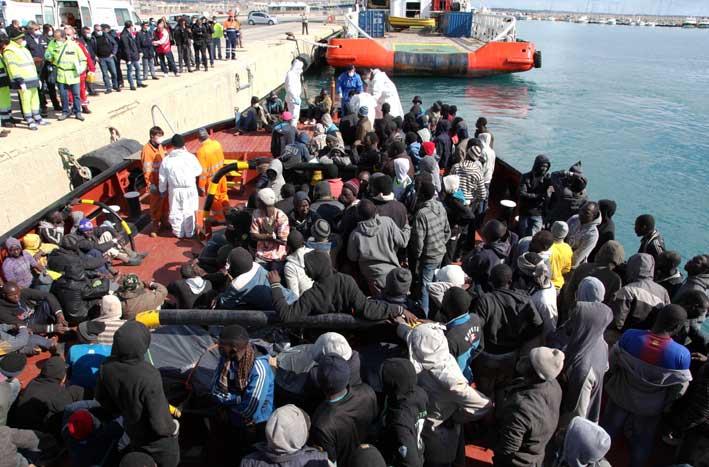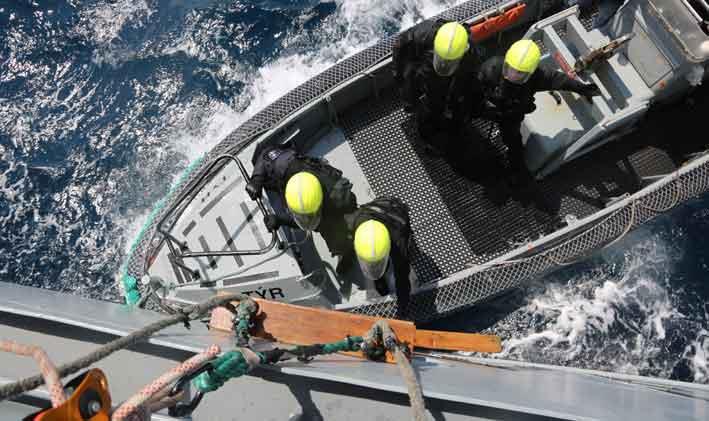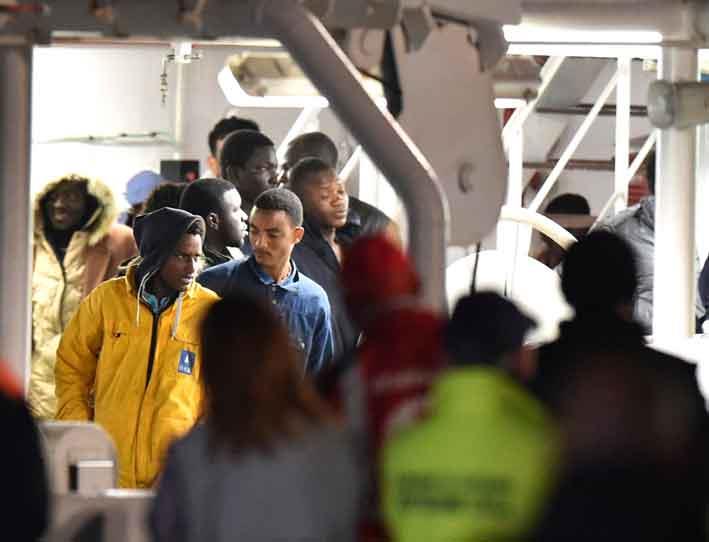Human rights organisations have expressed their concern about an EU plan to mount a military operation in Libyan territory, with one of its many aims being to destroy people smugglers' boats.
Neil Falzon, the director of local human rights NGO the aditus Foundation told The Malta Independent on Sunday that the human dimension must not be forgotten in all of this.
"As with every business model, suppliers exist because of the presence of individuals willing to pay a price for goods, or a service. It is an unscrupulous business that really preys on the sheer desperation of people who are on the run either to save their lives, from either war or persecution or such poverty that renders life unbearable, unliveable.

"We do support measures that will destroy this business, but not in a literal way. Beyond the international law questions as to the legality of such attacks, we're of course afraid of their human consequences: who will be ensuring that no innocent lives are lost?
"Who will bear the responsibility for collateral damage? Yes, destroy the business as you would any other business model: eliminate the demand, kill the profitability. If refugees and other migrants can get to Europe safely and legally, smugglers will lose their monopoly. If you simply destroy their boats, they will simply adapt and come up with routes to Europe that could be far more dangerous than those we know of today.
"Our main message therefore, as always when promoting a rights-based approach to policy-making, is to never lose sight of the human dimension," Dr Falzon said.

EU should assess short- and long-term consequences of military action
International human rights advocacy group Human Rights Watch were equally worried about the effect such a military operation could potentially have on migrants.
"Smugglers and traffickers often show a complete disregard for human life and dignity, and they should be held to account, but military action could expose migrants and asylum seekers to serious risks," said Judith Sunderland, acting deputy director of the Europe and Central Asia division at Human Rights Watch. "Saving lives at sea and bringing people at risk in the Mediterranean safely to EU shores should be the top priority."
The EU should assess carefully the short- and long-term human rights implications of any operation, including the risk that it will increase the dangers of boat migration in the Mediterranean, Human Rights Watch said.
The EU should also assess the risk of trapping migrants and asylum seekers in Libya, where they are often subjected to violence and abuse and have no possibility of lodging asylum claims. Migrants intercepted by EU vessels in the Mediterranean, including those participating in EUNAVFOR Med, should be taken to safe ports in the EU, where those asking for protection or indicating a fear of return should undergo asylum screening. Under no circumstances should the EU transfer boat migrants to the Libyan coast guard or land them in Libya, Human Rights Watch said.

The internationally recognised government in Libya has said it opposes EU action in its territory or territorial waters. Two governments are vying for legitimacy in Libya, the internationally recognized government based in Tobruk and Al-Bayda in the east, and another self-declared authority based in Tripoli in the west, from which the vast majority of boats depart.
Regardless of the area of operation, EU vessels participating in the planned naval operation are subject to the jurisdiction of the European Convention on Human Rights, which requires designing, planning, and implementing all operations with full respect for rights, including the right to life, liberty, and security, an effective remedy, and the prohibition of torture. The requirements prohibit sending anyone to a country where they risk torture or cruel, inhuman, or degrading treatment or threats to their lives or freedoms - the non-refoulement principle.